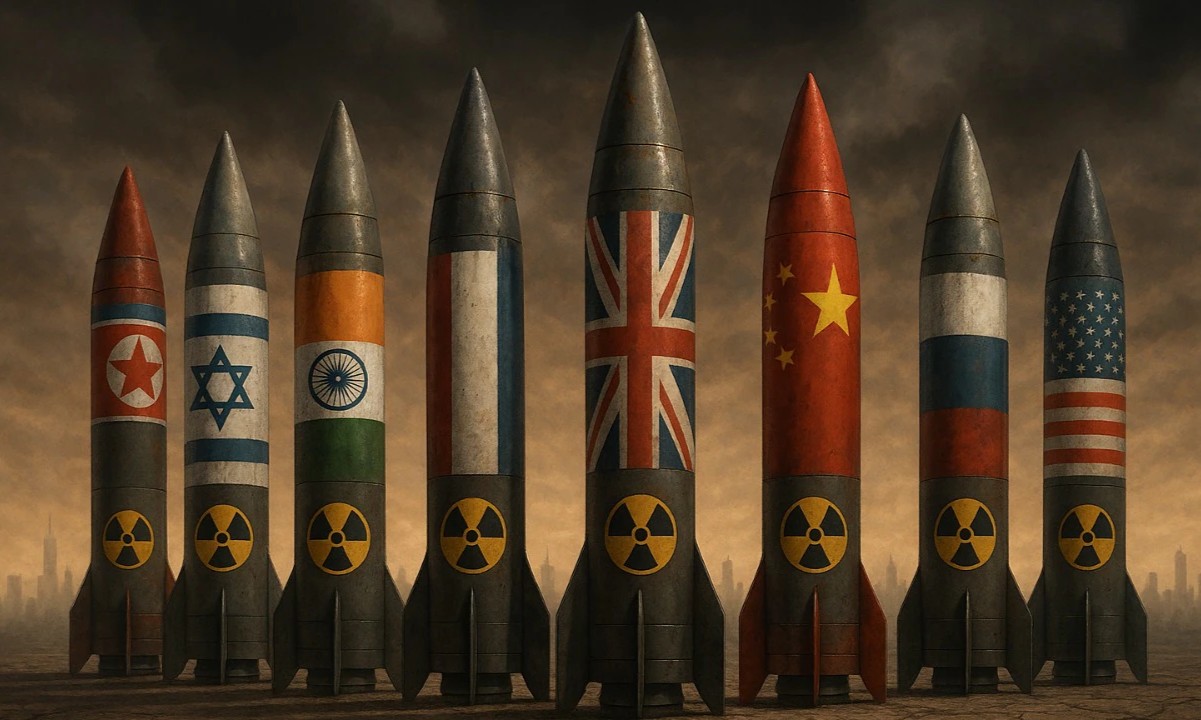
Ever wondered which countries have nuclear weapons? Nuclear-armed nations hold immense power and responsibility. Understanding who possesses these weapons can provide insight into global politics and security. Currently, nine countries have nuclear arsenals: the United States, Russia, China, France, the United Kingdom, Pakistan, India, Israel, and North Korea. Each of these nations has its own history and reasons for developing nuclear capabilities. Some aim for deterrence, while others seek regional dominance or security assurances. Knowing these facts can help you grasp the complexities of international relations and the balance of power. Ready to learn more about these nuclear-armed countries? Let's dive in!
Nuclear-Armed Countries: An Overview
Nuclear weapons have shaped global politics and security since their inception. Understanding which countries possess these powerful arsenals can provide insight into international relations and potential conflicts. Here are some key facts about nuclear-armed nations.
The Original Nuclear Powers
The first countries to develop nuclear weapons set the stage for the nuclear age. These nations are often referred to as the "nuclear club."
- United States: The U.S. was the first country to develop and use nuclear weapons during World War II. The bombs dropped on Hiroshima and Nagasaki in 1945 marked the beginning of the nuclear era.
- Russia: Known as the Soviet Union at the time, Russia tested its first nuclear weapon in 1949, becoming the second country to join the nuclear club.
- United Kingdom: The UK conducted its first successful nuclear test in 1952, making it the third nation to possess nuclear weapons.
- France: France entered the nuclear club in 1960 with its first successful test, emphasizing its desire for an independent nuclear deterrent.
- China: China tested its first nuclear weapon in 1964, joining the ranks of nuclear-armed states during the Cold War.
Newer Nuclear States
Beyond the original five, several other countries have developed nuclear capabilities, often in secret or under contentious circumstances.
- India: India conducted its first nuclear test in 1974, calling it a "peaceful nuclear explosion." It officially declared itself a nuclear-armed state after tests in 1998.
- Pakistan: In response to India's nuclear tests, Pakistan conducted its own tests in 1998, becoming the seventh country to possess nuclear weapons.
- North Korea: North Korea's nuclear program has been a significant point of international tension. The country conducted its first nuclear test in 2006.
Suspected and Controversial Programs
Some countries are suspected of having nuclear weapons or have controversial nuclear programs that raise global concerns.
- Israel: Israel has never officially confirmed or denied possessing nuclear weapons, but it is widely believed to have a significant arsenal.
- Iran: Iran's nuclear program has been the subject of international scrutiny and negotiations. While it claims to pursue nuclear technology for peaceful purposes, many suspect it aims to develop nuclear weapons.
Nuclear Non-Proliferation Efforts
Efforts to prevent the spread of nuclear weapons have led to various treaties and agreements.
- Nuclear Non-Proliferation Treaty (NPT): Established in 1968, the NPT aims to prevent the spread of nuclear weapons and promote peaceful nuclear energy. It has been signed by 191 countries.
- Comprehensive Nuclear-Test-Ban Treaty (CTBT): This treaty, which bans all nuclear explosions, has been signed by 185 countries but has not yet entered into force due to key nations not ratifying it.
Nuclear Arsenals and Capabilities
The size and sophistication of nuclear arsenals vary significantly among nuclear-armed countries.
- United States and Russia: Together, these two countries possess over 90% of the world's nuclear weapons, with each having thousands of warheads.
- China: China's nuclear arsenal is smaller but growing, with estimates suggesting it has around 350 warheads.
- France and the UK: Both countries maintain smaller arsenals, with France having around 290 warheads and the UK around 225.
Modernization and Disarmament
Nuclear-armed countries face the challenge of modernizing their arsenals while also engaging in disarmament efforts.
- United States: The U.S. is investing in modernizing its nuclear triad, which includes land-based missiles, submarine-launched missiles, and strategic bombers.
- Russia: Russia is also modernizing its nuclear forces, with new missile systems and updated delivery platforms.
- Disarmament Initiatives: Despite modernization efforts, there are ongoing initiatives to reduce nuclear arsenals, such as the New START treaty between the U.S. and Russia.
Regional Tensions and Nuclear Weapons
Nuclear weapons often exacerbate regional tensions and conflicts.
- South Asia: The rivalry between India and Pakistan, both nuclear-armed, has led to several military standoffs and concerns about potential nuclear conflict.
- Korean Peninsula: North Korea's nuclear program has heightened tensions in East Asia, leading to international sanctions and diplomatic efforts to denuclearize the region.
The Final Countdown
Nuclear-armed countries hold immense power and responsibility. With nine nations possessing these weapons, the global balance is delicate. The United States and Russia lead the pack, each with thousands of warheads. Meanwhile, countries like North Korea and Israel maintain smaller, yet significant arsenals. The history of nuclear weapons is marked by tension, treaties, and the constant push for disarmament. Understanding these facts helps grasp the gravity of nuclear proliferation and the importance of diplomacy. As technology advances, the landscape of nuclear capabilities may shift, making it crucial to stay informed. Knowledge is power, and in this case, it’s also a step towards global safety. Keep these facts in mind as the world continues to navigate the complexities of nuclear armament.
Was this page helpful?
Our commitment to delivering trustworthy and engaging content is at the heart of what we do. Each fact on our site is contributed by real users like you, bringing a wealth of diverse insights and information. To ensure the highest standards of accuracy and reliability, our dedicated editors meticulously review each submission. This process guarantees that the facts we share are not only fascinating but also credible. Trust in our commitment to quality and authenticity as you explore and learn with us.
